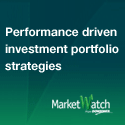[Update: This article was included in the Carnival of Personal Finance 264th Edition]
When it comes to the capital markets, information overload is a very distinct reality for most people, including ourselves. From countless websites and blogs dedicated to stocks, options, mutual funds, hedge funds, personal finance etc. etc. to print media and television, how can one not be inundated with too much information?
 Money” width=”240″ height=”180″ />
Money” width=”240″ height=”180″ />
Photographer: Duncan Rawlinson
We would liken this predicament to a fairly prevalent movie scene, where prosecutors demand the surrender of documents from a large corporation, and the obliging corporation in all there goodness, supplies the prosecutors office with innumerable cartons of paper that will usually take days, if not months to sort through. Similarly, everyday we are bombarded with advice and opinions from pragmatists to contrarians and often feel overwhelmed and unable to sort through the piles of numbers and statistics thrown at us from experts.
While we still struggle to deal with too much information, there are a few online sources that we do regard highly and visit often. These websites belong to portfolio managers that have long standing track records of outperformance. Furthermore, we are often rewarded with some fabulous stock picks hidden in their commentaries.
So, go ahead and check out the following websites. Read through the commentaries of these 5 intelligent gents, and if we skipped your favourite portfolio manager in our list, be sure to let us know with a link in the comments.
——————————————————————————————————————————
1. Goodwood Funds
——————————————————————————————————————————
Website: Goodwood Funds
Toronto based, Goodwood Funds is one of Canada‘s longest running long/short funds, having been in existence since October 1996. Fund manager (and founder) Peter H. Puccetti utilizes a deep-value approach and takes big stakes in out of favour, disliked, beaten up stocks. He runs a very concentrated portfolio, with positions frequently becoming 10% to 15% of the portfolio. Since inception of the Goodwood Fund, the fund has averaged 13.56% until the end of May 31, 2010, whereas the total return of the Toronto Stock Exchange during the same period has averaged +7.77%.
While we rarely see team members of the Goodwood Fund in the media, the company does upload monthly commentaries to its website, that include Puccetti ‘s take on the markets and their thesis behind a particular holding in their portfolio. For instance, their most recent commentary for May 2010 includes their take on E*Trade Financial Corporation.
——————————————————————————————————————————
2. Trapeze Asset Management
——————————————————————————————————————————
Website: Trapeze Asset Management
Value oriented Trapeze Asset Management provides discretionary portfolio management for institutions and high net worth individuals, primarily through separately managed accounts. Founded by a father-son pair, Herbert & Randall Abramson, the firm uses a proprietary quantitative model that was originally developed by the late theoretician, Dr. Verne H. Atrill. Frequent media commentator, Ross Healy of Strategic Analysis Corporation has now taken over the work since the passing of Dr. Atrill. The Structural Valuation Analysis (SVA) methodology is based on the theory of Accounting Dynamics and is balance sheet driven. One of the concepts behind SVA is that a company has to have to have an efficient balance sheet, meaning that the balance sheet has to reflect optimum leverage. Based on mathematical constants, the SVA model is a timing model that breaks down a stock into price to adjusted net worth. The model also comes up with price floors and ceilings for entry and exit points relative to a company’s fair market value. The firm typically likes to hold its long positions for three years, so even if the market at large doesn’t recognize the disconnect between the fair market value and the stock price in the short term, the stock price will rise nonetheless with the growth in the company. When the narrowing of the discount (between the stock price and fair market value) does occur, the stock should get a double whammy. The system certainly works as Trapeze’s Long-Only Composite portfolio has returned 10.6% since October 1998, as compared to the S&P/TSX that has averaged 9.2% during the same period.
While you may not see either Herbert or Randall Abramson in the media that often, the firm does put out a quarterly investment letter that is available on their website, highlighting their macro outlook, investment strategies, and details of their security holdings. Whether they talk about individual stocks, which they often do in some detail or whether they are talking about their top down perspective, these letters are chock full of great market insights.
——————————————————————————————————————————
3. ABC Funds
——————————————————————————————————————————
Website: ABC Funds
Podcast: Value Check Podcast
Having established ABC Funds in 1988, Irwin A. Michael has averaged annualized returns of 13.51% (results for the Fundamental-Value Fund) since March 20, 1989 compared to the TSX Composite Total Return Index that has averaged 8.60% during the same period. To put Irwin’s performance into perspective, $10,000 invested with into the Fundamental-Value Fund 21 years ago, would be worth $143,125, whereas the same amount in the TSX would be worth about $56,549. Irwin describes his style as “opportunistic, deep value, contrarian, proactive and focused.’ However, he primarily considers himself to a deep value investor which leads him to hunt for beaten up companies that have potential to grow. Net asset value (NAV) is a critical area of focus, as Michael breaks down the value of a company into many pieces and then puts it back together to determine what it is worth relative to where its trading. Michael is the largest individual unitholder of the ABC Funds.
Irwin does a marvelous job of communicating with his clients, be it through podcasts, monthly commentaries or discussions of the fundamental merits of his top 15 to 20 ABC Value Favourites. We’ve enjoyably spent several hours reading and gleaning the principles of value investing, Michael’s market insights and his wonderfully detailed and updated analysis of his portfolio holdings on the Value Investigator website and would recommend bookmarking the site.
——————————————————————————————————————————
4. QV Investors
——————————————————————————————————————————
Website: QV Investors
Leigh Pullen founded QVGD Investors in 1996. At the time, QVGD stood for quality, value, growth, and diversification. In 2007, to keep the company name short and simple, the ‘GD’ was dropped. In terms of investing philosophy, Pullen says “we’re interested in investing in enduring and sustainable businesses, led by capable and honest people. Behind that follows an emphasis on valuation, and behind that follows commitment to being a long-term investor in businesses that we like.” As of 2009, the company had $2.4 Billion in Assets Under Management. While QV runs 5 funds including the Canadian income fund, the Canadian balanced fund, the Canadian equity fund, the global equity fund and the Canadian small cap fund, we’re most interested in the results of the Canadian small cap fund. Launched in 1997, the award winning QV Canadian Small Cap Fund has averaged an annualized return of 12.2% since inception compared to the BMO Small Cap index that has averaged 5.2% during the same period. Fund managers Joe Jugovic and Ian Cooke seek to exceed the average annual return on equity of Canadian companies, a rate of 10% over the past two decades, and to exceed the return on the BMO Small Cap Index and do so with lower volatility. In order to do so, they selects companies by QV’s fundamental tests of management commitment, financial and operational records or business franchise, balance sheet quality, valuation, dividend record, and overall quantitative contribution to the portfolio. As far as we can tell, they have certainly succeeded in accomplishing this objective.
What we like about the company is that their fund managers are fairly consistent and active in espousing their market views and highlighting their stock picks via market commentaries. While we pay particular attention to the writings of Joe Jugovic , Ian Cooke and Darren Dansereau, we have also picked up a quite a few nuggets of information from the writings of the other contributors and thus recommend the QV Investors website as a commendable source of market insights.
——————————————————————————————————————————
5. Deans Knight Capital Management
——————————————————————————————————————————
Deans Knight Capital Management
Website: Deans Knight Capital Management
Founded in 1992 by Wayne Deans and Doug Knight, Vancouver based Deans Knight Capital Management focuses on two strategies, growth and high income return. The firm describes its philosophy as being opportunistic with a long-term focus, buying undervalued businesses when they are out-of-favour. While the majority of investments are domiciled in Canada, many of these ‘Canadian’ investments have global operations. The company’s capital growth strategy involves looking for businesses with assets that provide a sustainable competitive advantage, reliable cash flows, hard book values, strong balance sheets, sum of parts worth more than the whole and hidden values. The firm makes no use of leverage or short selling and the portfolios are concentrated with 15-20 investments. The portfolio is also characterized by a low 20% turnover on average. Deans Knight has certainly found its stride in the Canadian marketplace as $1 million invested with Deans Knight in 1993 in their equity growth fund, is now worth nearly $19 million (as of March 31, 2010). To put things in perspective, the Deans Knight Equity Growth fund has averaged annualized returns of 18.9% since inception in March 1993 compared to the S&P/TSX Composite that has averaged 9.6% during the same period. Furthermore, returns from Deans Knight‟s income strategy have also exceeded those of the major North American Equity and High Yield Bond indices over the past 5, 10 & 15 year periods. The Deans Knight Income Fund has averaged annualized returns of 12.1% since inception in March 1993 compared to the S&P/TSX Composite that has averaged 9.6% and the Scotia Capital Markets(SCM) Universe bond index that has averaged 7.3%during the same period.
Deans Knight Capital Management is definitely doing something right and as such we want to learn as much about them and read everything written by the firm’s portfolio managers with the hope that a teeny weensy bit of their expertise rubs off on us. The Deans Knight Capital Management does have an archive of the quarterly commentaries for the Deans Knight Equity Fund and Deans Knight Income Fund that is great reading for top down macro insights on the Canadian equity and income markets. We’ve also discovered that Deans Knight is the fund manager of the TDK Resource Fund, which is under the umbrella of First Asset Management. Twice a year, at the end of March and August, the fund files a ‘Management report of fund performance’ on SEDAR, that not only talks about the performance of the fund and the markets over the preceding period but also highlights a few of the fund’s holdings. The same applies for the Deans Knight Income Corporation, a publicly traded company focused on investing in corporate bonds. If not for anything else, we would dig up the management reports of fund performance simply for the equity and fixed income picks.










